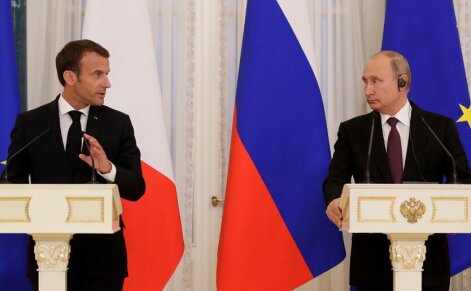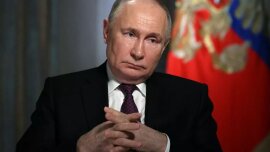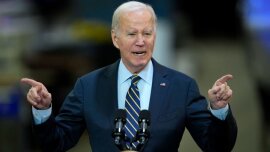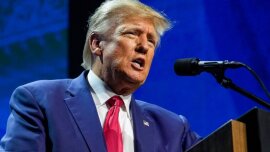Macron-Putin talks, Blinken-Borrell statements and Scholz-Biden negotiations. All this can be compressed to a few key conclusions, as I see it.
1. Western partners have finally agreed among themselves that they will promote the implementation of the Minsk agreements as the only way to de-escalate and compromise with the Russian Federation, the most painless for them and with minimal risk to their interests (I emphasize, THEIR interests, not ours);
2. The collective West does not yet have an agreed action plan for sanctions pressure on Russia. Olaf Scholz spoke reluctantly and vaguely about Nord Stream 2, and the head of the German Foreign Ministry Annalena Baerbock completely canceled the meeting with V. Zelensky. According to the media, due to disagreements regarding the Nord Stream 2 and the supply of weapons. I think that a general sanctions package will appear, but it will be a compromise;
3. Europeans, Americans and Russians have a common vision of a set of issues that Ukraine must fulfill in order to reach a compromise - this is an amnesty, autonomization of Donbas and (maybe) direct negotiations with ORDLO. To ignore this in their public statements is to bury their heads in the sand;
4. In an attempt to strengthen his negotiating position in the EU and take the place of the European leader, Macron will try to promote a compromise with the Russian Federation as his diplomatic victory, and he needs Ukraine to demonstrate “progress” on an issue where even Angela Merkel failed to achieve success. Before the elections in May, this is the very thing. At the same time, it is possible to reach agreements with the Russian Federation regarding their military presence in Africa, where Paris has even more sensitive interests;
5. The German establishment does not want to confront either the Russian Federation or China, this is already clear as day. Americans dislike it and put pressure on Germans. Scholz essentially maintains Merkel's policy of strategic autonomization of Germany's foreign policy from the United States, or at least tries to.
I think that the reaction of our authorities to what is happening is a bit inadequate. Apparently, the traditions of the 1990s have not gone away, and we are again dividing the world binaryally into “us” and “them”, and this applies to both small states and those on whom we ourselves depend, such as Germany or France.
Instead of taking relations with the West into a pragmatic business channel, and beginning to diversify external relations through other regions, we have gone into a primitive, narrow-minded Ukrainian-centricity in a bipolar world, where there is an evil, vile "Horde", whose entire agenda is fixated on the conquest of Ukraine, and there is a wonderful "Alliance", which spends days only thinking how to help us repel the attacks of the orcs.
No deviation in this perception was initially laid down. Therefore, stories about China, India, Turkey or what is happening in Africa seemed distant and insignificant to us.
As a result, we ourselves drove ourselves into a semantic and logical trap. First, we cut off all non-Western countries that didn't do what we wanted while voting for a useless UN resolution.
Then they called Germany and France traitors with idiotic phrases like "Frau Ribbentrop" because they do not want to solve all the problems for us and only in our favor. Last year, disappointment came to the United States, which, however, was linked to the person of Biden, as if still waiting for a miracle in 3 years.
Then a couple of clever and beautiful gestures created new heroes - Poland and Britain, on which now there is all hope for salvation, although their resources and capabilities are still limited.
So, from one information and media totem to another, we continue to dodge, and even call it the “strategy of small alliances”, although there is no talk of any alliances now, too early and too few resources have been invested in this.
Against the backdrop of the aggravation of the global divide between East and West, we do not have any coherent global policy, not to mention our vision of our place in the world, including in the context of the confrontation between China and the United States. The Olympic Declaration of the Russian Federation and China in this context is ignored or is also perceived through the prism of our perception of the times of the Cold War.
So there are several ways out of this impasse, and all of them are not the best:
- Compromise on the basis of Minsk-2 and then a long struggle with its consequences.
- A military escalation that will possibly tip the balance for better or worse.
- Dodge for some more time in the hope that the situation will again hang in the air, and we will have a respite that can be used to strengthen the state, or not used at all, and continue to slide into the bottom.

























